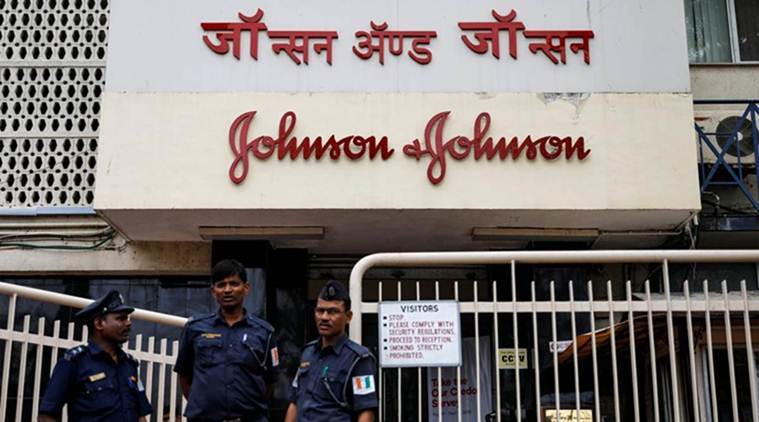
As early as October 2011, the Indian medical device regulator had questioned US pharma giant Johnson & Johnson about its Pinnacle Metal-on-Metal (MoM) hip implant that it imported and sold to patients here. The company, which has now agreed to pay $1 billion to settle lawsuits with patients in the US who used its defective Pinnacle hip implant, gave itself a clean chit calling it “safe and effective.”
The file was closed even as “adverse” reports related to the implant started to come in.
Johnson & Johnson has claimed that there are no patients with adverse reports in India. As reported today, The Indian Express tracked down down eight patients, five men and three women, who had the Pinnacle implanted. Their medical records, their communication with doctors and, in some cases, with Johnson & Johnson as well, paint a story of suffering, neglect and indifference. Of patients hitting a wall when it comes to seeking justice even as they fight pain, organ damage — the toxic effects of excess cobalt-chromium in the blood.
Almost a year after Johnson & Johnson globally recalled its ASR implant — this was also available in India — records obtained by The Indian Express show that the Central Drugs Standard Control Organisation (CDSCO), under the Union Ministry of Health, asked company officials to “give a technical presentation” on four aspects of the ASR recall: the procedure and reason for recall; action taken with investigation details; compensation details; and international regulatory status of the recall.
In October 2011, officials from the company made a presentation before the regulator to answer queries related to the ASR recall. During the presentation, the company was asked to provide detailed information on “other metal-on-metal” implants it sold in India. The additional information was asked at a time when international reports had surfaced on various models of MoM hip implants failing earlier than expected.
On October 14, 2011, the company replied to the regulator, the documents reveal, that besides ASR, it was selling Pinnacle cleared by the US regulators and “is backed by more than a decade’s worth of clinical data that have consistently shown that Pinnacle is a safe and effective option.”
Records show that Johnson & Johnson cited 2010 data from the National Joint Registries in the UK and Australia to underline that 96 percent of the implants in these two countries were still in place five years after they were implanted. “Patient’s safety is our first priority. We hope we are able to provide you the required information and we would keep you updated with any new information as and when this is available to us,” wrote Kulwant S Saini, the then Vice President , Strategic Regulatory Affairs and Quality Compliance of DePuy Medical Private Limited, Mumbai, the Johnson & Johnson subsidiary that sold Pinnacle.
Also Read | ‘Johnson & Johnson knew for decades about asbestos in its baby powder’
The company did not, however, cite any data of Pinnacle implants used on patients in US.
By 2012, lawsuits against Pinnacle were being filed in US courts alleging that Pinnacle was defective and USFDA, the medical device regulator in the country, decided to scrutinize the safety of metal-on-metal implants. But regulators in India were in the dark about these developments and Pinnacle’s withdrawal from the market in 2013.
When contacted by The Indian Express, Drug Controller of India Eswara Reddy declined to comment.
A DePuy spokesperson said: “We have no greater responsibility than to the patients who use our products…The decision to discontinue (Pinnacle) was not related to safety or efficacy and it was not a recall. In 2013, DePuy discontinued (its) sales worldwide including in India based on low demand.” The spokesperson did not comment on questions regarding complaints from patients and its $1-billion settlement in the US in lawsuits filed by patients.
Read more from The Indian Express’ investigation series ‘Implant Files’